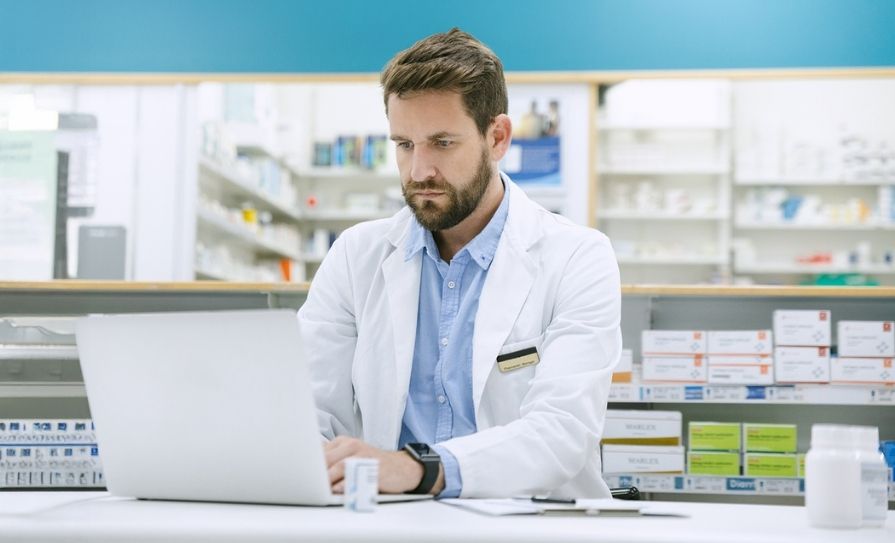Dealing with Covid-19 might have been easier if some people had put their mouths in lockdown, writes Fintan Moore
One of the downsides of freedom of speech is the ability of every person to voice an opinion when there are times that the world would be better off if some of them would shut the hell up. Throughout each stage of the pandemic response in this country, there have been people criticising the decisions made. The Government got a lot of things right, and a few things wrong, especially the failure to correctly assess and deal with the threat to care home residents. However, in the early days, they had to push every one of their decisions through a herd of people screaming that they were ‘over-reacting’. Even cancelling the St Patrick’s Day celebrations caused people who should have known better to complain. At least the whole ‘Look at Sweden — they’re doing fine without a lockdown’ brigade have gone quiet for now.
On top of the public figures bitching about the choices made, you then find that every social media pundit has become an expert overnight in the field of infectious diseases. Inevitably, the usual conspiracy theory fringe element was delightedly sharing the latest video filmed by some ignoramus broadcasting on his YouTube channel from his mom’s basement in Nowheresville, USA, confirming that the coronavirus was man-made, and was created and propagated by a malign combination of global corporations and security agencies to generate massive profits for Big Pharma companies producing treatments and vaccines for the coronavirus, which will be forced onto the population because of the fear spread by the mainstream media and any dissenting voices will have been crushed by the repressive anti-democratic laws introduced throughout the Western world to stop people leaving their homes and exercising the freedom to assemble and protest, with the ultimate goal being the concentration of power in the hands of an elite controlling the levers of the security apparatchiks. Or something like that.
Even real, actual experts with letters after their names inevitably got things wrong along the way, which is perfectly understandable in a fast-changing, unprecedented situation. Always bear in mind that the pandemic is a multifaceted problem, and that academics tend to be very focused on single facets, so when you hear a professor in one field (such as virology) being interviewed, it’s worth remembering that he or she is not a medical doctor, or an epidemiologist, or an expert in public health medicine, etc. Even the genial media darling of the moment, TCD Professor Luke O’Neill, managed to sit and watch Claire Byrne put a surgical face mask on upside down without spotting anything wrong, so the practical realities can sometimes slide by also.
As community pharmacists, we’re going to be working with the risks of coronavirus for a long time to come, so as we get more data and experience, then the quality of the advice we get should improve. Given some of the dumber things that non-pharmacist academics have said in the media about pharmacy in the past, we should know to stay sceptical, so every time you hear advice from anybody on how you should do your job, check their credentials and track record. Ultimately, it’s our health and that of our staff and families that are on the line, so make your own judgements using the most trustworthy information available, and if in doubt, err on the side of caution. It could be a long and unpleasant winter.
Out to Lunch
Historically, I was never a fan of closing pharmacies for lunch. Back in my employee days, I was happier to be paid through a lunch hour and grab a sandwich on the go rather than have an unpaid hour off. As a proprietor, I kept the same mindset, and preferred to be open to get the business. I also reckoned that by closing for lunch, then all the day’s work would get need to be done in fewer hours, leading to more pressure during the opening hours. Then the pandemic arrived.
As community pharmacists, we’re going to be working with the risks of coronavirus for a long time to come, so as we get more data and experience, then the quality of the advice we get should improve
After a few days of the mayhem following on from the 12 March shut-down, I decided that closing the pharmacy from 1 to 2 was one of the smarter things I could do. It meant that the staff and I could all get a clear, uninterrupted lunch and clear our heads a bit. Then phone calls could be made, emails sent, and we could ‘triage’ our prescription backlog into what needed immediate attention, and what could be parked for a while. By 2 o’clock, we were better prepared physically, mentally and organisationally to face the afternoon. I reckon that the lunchtime closing was hugely helpful to how we coped without burning out. The pressure has eased off now, but even when the pandemic crisis eventually passes, I’m more likely than not to keep shutting for lunch. There is an associated trading and financial loss, but I think the health and wellbeing benefits could be worth it.
Pressure Rising
Like everybody else trying to socially distance themselves, I had been reluctant to take blood pressure readings in the pharmacy. The problem is that GPs had pretty much shut their doors, and they can’t take blood pressure readings in a telephone call, so this was leaving patients swinging in the breeze. Each to their own, but I decided that the risk-benefit ratio landed in favour of taking measurements, especially as I don’t get asked often. The scary bit is that of the four or five that I’ve done, three of them were high enough to send them to a doctor immediately, bordering on calling an ambulance for one man.
My pharmacy turnover is bang-on average, so if I’ve seen three dangerous cases, then there were probably 5,000 to 6,000 similar people nationwide that went to pharmacies. Not every pharmacy would have been able to see them, but I wonder how many did, and how many high-risk cardiac events were averted as a result.








